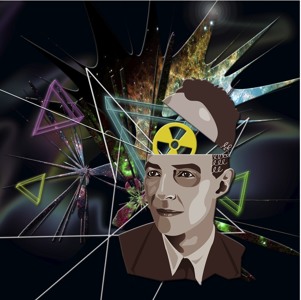This year, I've pulled back a bit from writing here. It's a combination of time and such and such. There are numerous reasons. None of them excuses, but each excusing me from one post or another. Now, it is the holidays, and since I didn't get around to a Best of 2012 list just yet, I have just this simple gift to bring (parum pum pum pum). In a world where malls and stores and offices have been churning out Christmas and Holiday classics since the week after Thanksgiving, we need a good list, comprising the less-schmaltzy (though I did include Paul McCartney), the less classical (although "Christmastime is Here" is so good it made the list. The holidays in a minor key!? Fuck yes.) and the less irritating (but Kylie Minogue's "Santa Baby" manages to carefully mitigate that weird "little girl" aesthetic normally ascribed to the song so it made the list).
With those exceptions, and more, I present to you The 12 Tracks of Christmas. I hope to have provided you with a delicate, intelligent journey from the brightest childlike aspects of the holiday, to the deeper, sadder implications of a world that's made bright once a year as a tradition, but never kept bright all year long. Also, there's some Jesus stuff in there too. Poor pagans. They were partying on the Winter Solstice for generations and then post-Jesus scribes just had to F with their shit by claiming the Christian savior's b-day was right around then.
Happy holidays and tons of love from me and Gas Lantern Media. Listen to the list, embedded below, or hit the Spotify link.
Love, Nate
http://open.spotify.com/user/1210486318/playlist/1DFU8OdGw4jSmD7JyhhNo3
Image by epiclectic via Flickr. Creative Commons: Some rights reserved.
Read more ...
With those exceptions, and more, I present to you The 12 Tracks of Christmas. I hope to have provided you with a delicate, intelligent journey from the brightest childlike aspects of the holiday, to the deeper, sadder implications of a world that's made bright once a year as a tradition, but never kept bright all year long. Also, there's some Jesus stuff in there too. Poor pagans. They were partying on the Winter Solstice for generations and then post-Jesus scribes just had to F with their shit by claiming the Christian savior's b-day was right around then.
Happy holidays and tons of love from me and Gas Lantern Media. Listen to the list, embedded below, or hit the Spotify link.
Love, Nate
http://open.spotify.com/user/1210486318/playlist/1DFU8OdGw4jSmD7JyhhNo3
Image by epiclectic via Flickr. Creative Commons: Some rights reserved.



.jpg)





























